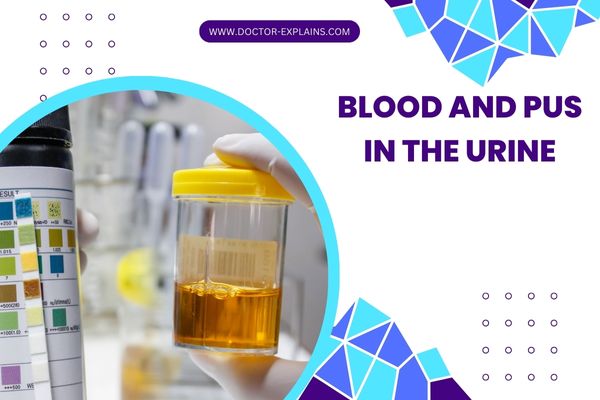Experiencing an itchy urethra is not only uncomfortable but can also be a cause for concern. Understanding the potential causes and treatments is essential for maintaining your urinary health. In this comprehensive guide, I’ll explore the common causes of an itchy urethra, how to diagnose the issue, and the various treatment options available.
The Short Answer: Common causes of an itchy urethra include urinary tract infections (UTIs), sexually transmitted infections (STIs), yeast infections, irritation or allergies from chemicals in personal care products, friction or trauma, and urethral strictures.
Summary of the causes of Itchy urethra:
| Type of Cause | Distinctive Features |
|---|---|
| 1. Infections: | |
| – UTIs | Caused by bacteria, most commonly E.coli. Symptoms include pain or burning during urination, frequent urination, cloudy or strong-smelling urine, and lower abdominal pain. |
| – STIs | Caused by bacteria, viruses, or parasites. Can cause urethral itching. |
| – Yeast infections | Caused by an overgrowth of the fungus Candida. Symptoms include itching and burning around the genital area and thick, white vaginal discharge (in females). |
| – Prostatitis | Inflammation of the prostate gland (in males). Symptoms include pain or discomfort in the groin, lower back, or perineum and pain. |
| 2. Irritation and Allergies: | |
| – Chemical irritants | Found in personal care products. Can cause itching, burning, or redness around the urethral opening. |
| – Allergic reactions | Can occur in response to certain substances, such as latex or spermicides. Symptoms may include itching, swelling, or rash. |
| – Friction or trauma | Can result from vigorous sexual activity or improper insertion of a urinary catheter. May cause itching, discomfort, or even bleeding. |
| Urethral Strictures: | Narrowing of the urethra due to scar tissue, inflammation, or injury. Causes difficulty urinating, weak urine stream, pain during urination, and recurrent UTIs. |
| 3. Other Causes: | |
| – Kidney stones | Hard mineral deposits in the kidneys that can cause pain, bleeding, or infection. |
| – Interstitial cystitis | A chronic bladder condition characterized by pain, urgency, and frequency that can cause urethral discomfort or itching. |
| – Urethral diverticulum | A pouch that forms in the urethra and can cause pain, dribbling urine, or recurrent UTIs. Occurs almost exclusively in females. |
| – Urethral Pain Syndrome (UPS) | Enduring discomfort or aching in the urethra without an identifiable reason. Can cause stinging during urination, constant itchiness, and heightened sensitivity. |
| – Menopause (Postmenopausal Cystourethritis) | Reduced hormones after menopause can cause urethral pain and itching, often associated with infection (vaginitis or UTI). |
| – Other rare causes | Urethral cancer, foreign body in the urethra, recent cystoscopy, skin diseases affecting the urethral opening, and hot water paths. |
Anatomy of the Urethra
Before diving into the causes and treatments, let’s briefly discuss the urethra’s anatomy and function (reference):
- The urethra is a tube that connects the urinary bladder to the outside of the body.
- Its primary function is to transport urine from the bladder for elimination during urination.
- There are differences between male and female urethras:
- In males, the urethra is longer (about 20 cm) and passes through the prostate gland and penile shaft.
- In females, the urethra is shorter (about 4 cm) and opens just above the vaginal opening.

Common Causes of an Itchy Urethra
There are several reasons why you might experience an itchy urethra, including:
1. Infections
- Urinary tract infections (UTIs):
- Caused by bacteria, most commonly Escherichia coli (E. coli)
- UTI is a very common cause of itchy urethra and pain during urination.
- Women are commonly affected by UTIs. UTI is one of the most common infections. If you are a woman, you have a lifetime UTI incidence of 50-60% (reference).
- Symptoms include:
- Pain or burning during urination
- Frequent urination
- Cloudy or strong-smelling urine
- Lower abdominal pain (bladder pain).
- Sexually transmitted infections (STIs):
- Caused by bacteria, viruses, or parasites
- Common STIs that can cause urethral itching include:
- Chlamydia
- Gonorrhea
- Trichomoniasis
- Yeast infections (Candida vaginitis):
- Caused by an overgrowth of the fungus Candida
- Symptoms include:
- Itching and burning around the genital area
- Thick, white vaginal discharge (in females)
- Prostatitis:
- Inflammation of the prostate gland (in males)
- Symptoms include:
- Pain or discomfort in the groin, lower back, or perineum
- Painful intercourse.
- Frequent urination
2. Irritation and Allergies
- Chemical irritants:
- Found in soaps, detergents, condoms, or other personal care products
- Bubble paths.
- Can cause itching, burning, or redness around the urethral opening
- Allergic reactions:
- Can occur in response to certain substances, such as latex or spermicides
- Symptoms may include itching, swelling, or rash
- Friction or trauma:
- Can result from vigorous sexual activity or improper insertion of a urinary catheter
- May cause itching, discomfort, or even bleeding
3. Urethral Strictures
- Narrowing of the urethra due to scar tissue, inflammation, or injury
- Causes and symptoms include:
- Difficulty urinating
- Weak urine stream
- Pain during urination
- Recurrent UTIs
4. Other Causes
A. Kidney stones:
- Hard mineral deposits form in the kidneys and can pass through the urinary tract
- May cause pain, bleeding, or infection. small stones or gravels may cause urethral itching only without severe pain when they pass.
B. Interstitial cystitis:
- A chronic bladder condition characterized by pain, urgency, and frequency
- Can sometimes cause urethral discomfort or itching
C. Urethral diverticulum:
- A pouch that forms in the urethra and can collect urine or cause infection
- Symptoms may include pain, dribbling urine, or recurrent UTIs.
- It occurs almost exclusively in females. A painful or itchy mass may be felt near the urethral opening.
D. Urethral Pain Syndrome (UPS):
Urethral Pain Syndrome, a less commonly mentioned source of urethral irritation, involves enduring discomfort or aching in the urethra without an identifiable reason.
Manifestations encompass stinging while urinating, constant itchiness, and heightened sensitivity. Determining the cause is difficult since alternative explanations need to be dismissed.
E. Menopause (Postmenopausal Cystourethritis):
Reduced hormones after menopause (such as estrogen) cause profound urinary tract changes. The dramatic changes in estrogen lead to changes in the lining of the urethra and make the urinary tract environment more susceptible to infection and irritation.
Urethral pain and itching are common among menopausal women and may be associated with infection (vaginitis or UTI).
Learn more about the condition.
F. Other rare causes:
- Urethral cancer.
- Foreign body in the urethra.
- Recent cystoscopy.
- Skin diseases affecting the urethral opening.
- Hot water paths.
Diagnosis and Evaluation
To determine the cause of an itchy urethra, a healthcare professional may:
1. Take a Medical History and Perform a Physical Examination
- Ask about your symptoms, medical history, and sexual activity
- Examine the genital area for signs of infection, irritation, or injury
2. Conduct Urinalysis and Urine Culture
- Collect a urine sample to analyze for:
- Infection
- Kidney stones
- Other underlying conditions
3. Perform Imaging Studies
- Ultrasound:
- Uses sound waves to create images of the urinary tract
- Can help identify kidney stones, strictures, or other abnormalities
- Cystoscopy:
- Involves inserting a thin, flexible tube with a camera into the urethra and bladder
- Can visualize the urethral lining and identify any issues
4. Obtain a Urethral Swab and STI Testing
- Collect a swab from the urethra to test for STIs, such as chlamydia or gonorrhea
Treatment Options
Once the cause of the itchy urethra is identified, appropriate treatments may include:
1. Treating Infections
- Antibiotics for UTIs and STIs:
- Prescribed to kill bacteria and resolve the infection
- Antifungal medications for yeast infections:
- Available in oral or topical forms to treat fungal overgrowth
- Medications for prostatitis:
- Antibiotics, anti-inflammatory drugs, or alpha-blockers may be prescribed
2. Addressing Irritation and Allergies
- Avoiding irritants:
- Switch to gentle, fragrance-free personal care products
- Use hypoallergenic condoms or lubricants
- Over-the-counter creams or ointments:
- Can provide temporary relief from itching and irritation
- Antihistamines for allergies:
- Can help reduce itching, swelling, and other allergic symptoms
3. Managing Urethral Strictures
- Medications:
- May be prescribed to reduce inflammation and improve urine flow
- Urethral dilation:
- A procedure to widen the narrowed urethra using a thin tube or balloon
- Surgical intervention:
- In severe cases, surgery may be required to remove the stricture or repair the urethra
4. Other Treatments
- Pain relief medications:
- Over-the-counter or prescription medications to alleviate discomfort
- Hydration and lifestyle changes:
- Drinking plenty of water and avoiding irritants can help prevent future issues
- Referral to a specialist, if necessary:
- A urologist or gynecologist may provide additional expertise and treatment options
Prevention Tips
To decrease the likelihood of developing an itchy urethra, take note of the following tips:
- Keep the genital area clean to maintain good hygiene
- Ensure healthy urinary function by drinking enough fluids
- Select gentle personal care products that are not irritants
- Engage in intercourse safely and use protection to minimize the risk of STIs
- Get regular check-ups and immediately seek treatment for infections
When to Seek Medical Help
It’s crucial to consult a healthcare professional if:
- Your symptoms persist or worsen despite self-care measures
- You experience severe pain or discomfort
- You have difficulty urinating or notice blood in your urine
- You suspect you may have an STI or other infection
Early diagnosis and treatment can help prevent complications and promote better urinary health.
Conclusion
An itchy urethra can be caused by various factors, including infections, irritation, and allergies. By understanding the potential causes and seeking appropriate treatment, you can find relief and maintain your urinary health. Remember that consulting a healthcare professional is critical for personalized advice and care.





